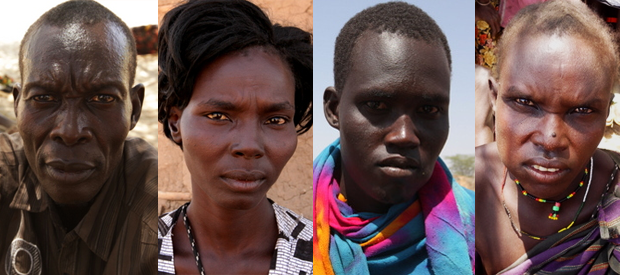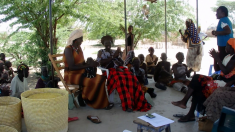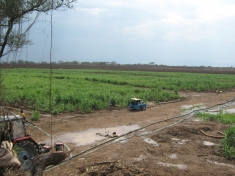Community Voices from Lake Turkana
“We don’t accept this. We disagree with whoever is planning this. We will never agree to it. Once the dam is functional, everything people feed on will disappear. Starvation will take over.” - Rebecca Arot, Turkana Pastoralist
In her own words: An interview with Narissa Allibhai, Field Researcher
What did you learn from being in these communities?
I was struck by seeing firsthand how indigenous peoples can have resources simply grabbed from them. It made me feel angry because it’s just not right. These people have been living here for generations, and then someone from another place comes in to take away the resources they’ve stewarded for so long . . . it doesn’t make sense. I came away scared and apprehensive because I knew that once the Gibe III and agricultural projects are completed, people are going to really suffer, including people I spoke with.
What do you hope people will get out of reading the report and watching the video?
I ask people to hear the voices of those who have been custodians of this lake for generations, and realize that they have been wronged and are limited in what they can do about it. These people need their fellow countrymen and the international community to step up urgently and save the world’s largest desert lake!
Is there anything people can do to help with this work to publicize the true costs of the Gibe 3 and irrigated plantations?
We need to raise awareness about this issue in Kenya and internationally. I ask people to share the video and the report through email, twitter, facebook, or any social media, and to use their contacts to talk about what can be done.
Kenyans should tweet to their MPs that they are concerned about the Gibe III dam and Lake Turkana as well as to our Cabinet Secretary of the Environment, Judi Wakhungu, and our President, H. E. Hon. Uhuru Kenyatta.
@JudiWakhungu – Prof. Judi Wakhungu
@UKenyatta – H.E. Hon. Uhuru Kenyatta
Learn more about Narissa Allibhai's impressions of Lake Turkana and its people on her blog.





